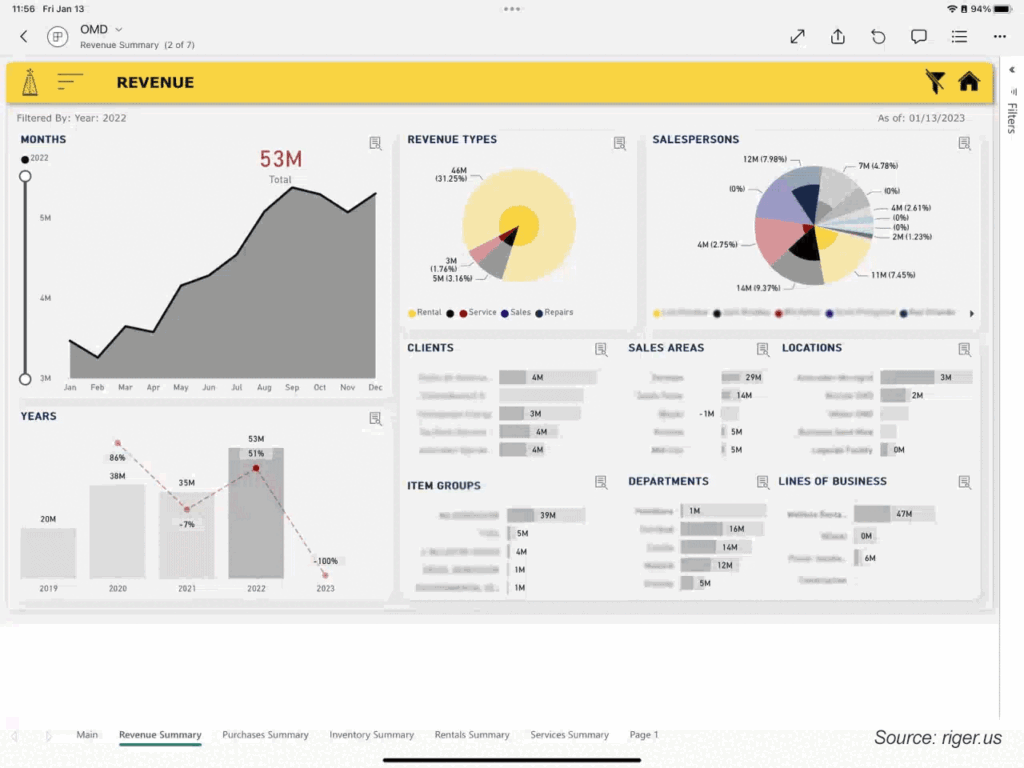
Discover how ERP for the oil and gas industry streamlines upstream, midstream, and downstream operations. Learn how customized ERP software improves efficiency, compliance, and profitability in the energy sector.
Unlocking the Power of ERP for Oil and Gas Industry
Implementing ERP for the oil and gas industry is no longer optional — it’s a strategic move to streamline operations, manage assets, and improve compliance. From exploration and production to distribution and retail, ERP software for oil and gas companies enables real-time data insights, predictive maintenance, and efficient resource planning.
The oil and gas industry operates within one of the most dynamic, volatile, and complex environments. Energy firms must deal with fluctuating market prices, stringent environmental regulations, and growing operational costs. This makes visibility, transparency, and agility more critical than ever. ERP systems offer centralized control, seamless data integration, and cross-departmental collaboration to improve decision-making and enhance productivity.
At Appfodev, we specialize in building ERP solutions tailored for the complex workflows of the energy sector. Our approach ensures each ERP implementation aligns perfectly with a company’s business model, goals, and regulatory landscape.
🔍 Key ERP Enhancements for Oil & Gas Enterprises
1. ERP in Upstream, Midstream, and Downstream Operations
Oil and gas ERP solutions should support the full value chain:
Upstream: In upstream operations, ERP software helps companies manage seismic data, exploration workflows, drilling schedules, and rig performance. It enables equipment maintenance tracking, spare parts inventory, and contractor management. These features reduce downtime and increase productivity across remote and offshore assets.
Midstream: The midstream segment relies on ERP to monitor pipeline integrity, track fuel logistics, and oversee asset performance. Real-time monitoring helps mitigate risks, such as pipeline leaks, and ensures the safe, efficient movement of hydrocarbons. Transportation schedules, warehouse logistics, and terminal operations can be efficiently planned using ERP dashboards.
Downstream: Downstream operations benefit from ERP software in areas like refining, petrochemical manufacturing, and retail distribution. ERP platforms streamline production planning, quality control, and compliance reporting. They also enable accurate tracking of fuel distribution across networks, from tankers to retail gas stations.
2. Real-World ERP Success Stories
Case studies make a strong case for ERP adoption in the oil and gas industry. Here are two compelling examples:
- Cost Reduction: A leading oil exploration company implemented a custom ERP solution to unify its asset tracking, procurement, and workforce management processes. Within one year, it reported a 22% reduction in operational costs, mainly due to improved procurement visibility and automated maintenance scheduling.
- Compliance Improvements: Another enterprise deployed ERP to standardize health, safety, and environmental (HSE) practices across its refineries. The result was a 30% decrease in compliance-related violations, aided by automated reporting and audit trails.
These examples underscore how customized ERP systems can deliver measurable ROI and help companies stay ahead in an increasingly competitive market.
3. Integration of IoT & AI in ERP Systems
Modern ERP platforms extend beyond traditional capabilities by integrating smart technologies such as the Internet of Things (IoT) and Artificial Intelligence (AI).
IoT Integration: ERP systems can connect with IoT devices to provide real-time data from sensors embedded in pipelines, drills, or tanks. This enables predictive maintenance, environmental monitoring, and safety alerts. For instance, if a sensor detects abnormal vibrations in a pump, the ERP can trigger a maintenance work order before a failure occurs.
AI Capabilities: AI-driven ERP modules can analyze historical and real-time data for more accurate demand forecasting, price optimization, and inventory management. AI can also assist with predictive analytics to anticipate supply chain disruptions and make proactive recommendations.
By incorporating these advanced technologies, ERP for oil and gas companies becomes a proactive decision-support tool rather than a passive record-keeping system.
4. Common Challenges in ERP Implementation
While ERP software can deliver immense value, successful implementation requires overcoming specific challenges, particularly in the oil and gas industry:
Data Migration: Legacy systems often contain fragmented or incomplete data. Migrating to a modern ERP platform requires careful planning, data cleansing, and system integration to ensure consistency and accuracy.
User Adoption and Training: ERP systems are complex. Ensuring staff adoption through proper onboarding, training, and change management is critical. A lack of familiarity with digital tools can delay project success.
Customization Needs: Off-the-shelf ERP solutions typically do not cater to the unique needs of oil and gas enterprises. Custom modules are often necessary to align ERP functionality with niche workflows and compliance requirements.
Scalability and Upgrades: As operations grow or shift geographically, ERP systems must scale accordingly. Choosing a flexible, modular ERP system ensures that companies are prepared for future expansion and evolving needs.
5. Visualizing ERP Workflows
Although not shown here, visual content such as ERP flowcharts, architecture diagrams, and process maps can significantly enhance understanding. These visuals illustrate how ERP systems interact with various departments — procurement, finance, HR, logistics, compliance, and operations.
Infographics showing data flows between IoT sensors, ERP dashboards, and field operators can also highlight the depth of integration and real-time decision-making enabled by smart ERP platforms.
Additional Value for Readers
FAQs
How long does ERP implementation take in an oil and gas company?
Implementation timelines vary depending on company size and customization needs. On average, mid-sized energy firms can expect 6 to 12 months for full implementation. A phased rollout strategy often minimizes disruptions.
What kind of ROI can energy companies expect from ERP systems?
The return on investment depends on the scope of deployment and areas targeted for improvement. Typical benefits include 15–30% reductions in operating costs, 20% improvements in asset uptime, and enhanced reporting accuracy.
Can ERP systems improve environmental and regulatory compliance?
Yes. ERP software helps companies maintain digital records, automate compliance checks, and generate audit-ready reports. This ensures faster response to inspections and lower risk of violations.
Is cloud-based ERP suitable for the oil and gas industry?
Absolutely. Cloud ERP enables remote access, real-time updates, and lower IT maintenance. It is especially beneficial for geographically dispersed teams and remote field operations.
Glossary
Upstream: Exploration and production activities in the oil and gas sector.
Midstream: Transportation and storage of crude oil, natural gas, and refined products.
Downstream: Refining, marketing, and distribution of petroleum products.
ERP (Enterprise Resource Planning): A suite of software applications used to manage business processes.
IoT (Internet of Things): Technology enabling devices to collect and share data over networks.
AI (Artificial Intelligence): Algorithms that simulate human intelligence for tasks such as data analysis and prediction.
Call-to-Action (CTA)
Ready to optimize your operations with a powerful ERP for the oil and gas industry? Schedule a free consultation with Appfodev to explore your custom solution.
Final Thoughts
The oil and gas sector demands precision, speed, and control — and that’s exactly what the right ERP software delivers. With industry-specific features, seamless integration with emerging technologies, and a clear focus on ROI, ERP for oil and gas companies is the key to long-term operational excellence.
Investing in a custom ERP platform transforms how energy companies operate. From wellhead to warehouse, ERP connects people, processes, and performance indicators to drive real-time insight and scalable growth. Organizations that embrace digital transformation through ERP are not just surviving market volatility — they are thriving despite it.
At Appfodev, we develop custom ERP platforms that adapt to your workflows, scale with your growth, and future-proof your business.





